Speakers (2023)
(In alphabetical order) - continuously updated
David Abigaba
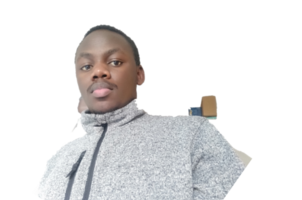
David Abigaba studied Forestry at Makerere University-Kampala Uganda for his bachelor's. He worked in the forestry sector in Uganda for 3 years before moving to Germany to pursue a master's in Climate Change Management at the University of applied sciences Weihenstephan In Freising. Despite the numerous disciplines taught in this international course, he chose to study agroforestry deeply as a climate change adaptation strategy. He is currently a research assistant at the Potsdam Institute for Climate Impact research under the Climate Change and Health working group. He works under the NuTree project; the aim is to build a framework to include nutrition and health aspects in agroforestry projects in sub-Saharan Africa. David believes nature-based solutions provide diverse solutions towards mitigation and adaptation and will be vital in buffering against climate change effects while enhancing livelihoods and health.
Aminat Adebayo

Aminat Adebayo is a dedicated environmental sustainability advocate with a proven track record of impactful contributions.
She led the Children Against Climate Crisis project empowering more than 100 youths for the Global University Climate Forum. As a two-time Planetary Health Campus Ambassador, she founded the University of Ibadan Planetary Health Club, co-authored a children's book, and engaged in calls to action. Through YALI Fellowship and Climate Smart Nigeria roles, she educated more than two hundred students on climate issues.
Aminat's contributions to esteemed journals like Elsevier and Challenges highlight her expertise. She presented her research at international conferences and spoke at global universities.
Aminat now leads KitsOnEarth, empowering youth for sustainability, while managing communication and sustainability at Rentout. Her passion fuels her solutions-driven approach to create a better future.
John Jamir Benzon R. Aruta
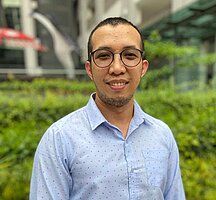
John Jamir Benzon R. Aruta, PhD is an incoming Associate Professor at the De La Salle University, Manila, Philippines, where he also received his Ph.D. degree in Counseling Psychology. Prior to joining De La Salle University, he worked as a Senior Lecturer of Psychology in Sunway University, Malaysia. His research program includes 1) the application of psychology principles in promoting environmental sustainability, 2) the interface between climate change and mental health in the Global South context, 3) planetary health, and 4) mental health of neglected and marginalized populations. He currently serves as an Associate Editor of the journal Global Environmental Psychology and member of the Editorial Board of BMC Psychology. Dr. Aruta is also an active clinical practitioner in the Philippines where he provides mental health assessment, counseling, and psychotherapy for children, adolescents, and early adults.
Maurizio Bär
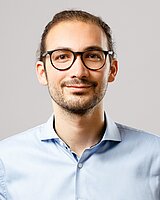
Maurizio Bär is a research associate in the Climate Friendly Hospital Havelhöhe project. After completing his medical studies, he worked clinically in child and adolescent psychiatry for several years. In addition to his regional work at Health for Future, his research focuses on accounting for and reducing greenhouse gas emissions from healthcare facilities. He uses his practical experience at KLUG to support healthcare facilities on their path to climate friendliness and resilience with the Competence Center for Climate-Resilient Healthcare Facilities and Medicine, or KliMeG for short.
Sabine Baunach
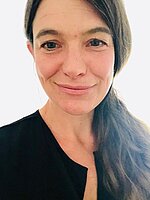
As a medical doctor Sabine Baunach has a background on Sexual and Reproductive Health and Rights with a focus on humanitarian and development contexts. For more than ten years she focused her professional career serving crisis affected women and girls around the globe before discovering her own transformative potential and committing herself to Planetary Health.
Today, Sabine works in various roles as consultant, lecturer and researcher for Planetary Health. She holds a medical degree from the Technical University Munich and a Master of Science for International Health from the Charite, Berlin.
Diana Bii
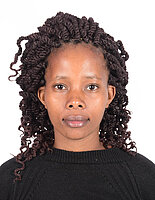
Diana Bii is an aspiring environmental health leader hailing from Kenya. As a dedicated postgraduate student at the University of Eldoret, she is pursuing a Masters degree in Environmental Health at the University of Eldoret, School of Natural Resources and Environmental Sciences. She is looking forward to working on research that focuses on climate change and health. Her passion for the well-being of both people and the planet has led her to become an influential figure as a global Planetary Health Campus Ambassador. She is also an active member of Planetary Health Eastern Africa Hub and Women Leaders for Planetary Health.
Diana's commitment shines through her engaging initiatives, where she collaborates with fellow students and local communities to promote Planetary Health activities. Her advocacy for the creation of green spaces underscores the importance of environmental and wetland conservation, to enhance mental well-being by preventing mental health issues related to climate change.
Having served as a research assistant on projects like "the impact of backyard farming and livestock keeping on child nutrition amid Covid-19," Diana demonstrates her dedication to addressing pressing issues. Currently, she continues to make strides as a research assistant for the DAAD funded project "Strengthening One Health and Planetary Health in Eastern Africa," in partnership with Julius-Maximilians-Universität Würzburg (JMU), Germany and Catholic University for Health and Allied Sciences (CUHAS), Tanzania " hence solidifying her role in advancing these crucial fields.
Beyond her academic and professional accomplishments, Diana wears the cherished hat of a devoted mother. Her concern for the future survival and well-being of her children's generation fuels her passion for immediate climate action. Strengthening her sense of purpose, she wholeheartedly engages in volunteering and community service. Her enthusiasm for giving back is matched only by her love for nature.Nature beckons to Diana's adventurous spirit, as she finds solace and inspiration through hiking and camping. These activities offer her the freedom to immerse herself in the natural world, igniting a profound connection that amplifies her commitment to creating a healthier, more harmonious planet and a sustainable future.
Felix Bittner
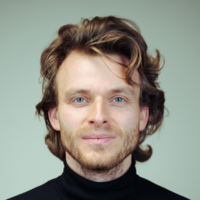
Felix holds a BA in Management of Social Innovation from Munich University of Applied Sciences and an MSc Environmental Policy and Regulation from the London School of Economics. He is also a certified agile coach, and project manager. Felix has professional experience in the private sector as well as with civil society organisations. As a project manager with the German Alliance Climate Change and Health (KLUG), he leads large-scale transformation projects and implements political campaigns. He is also part of the Health for Future movement, which helped build and coordinated for two years.
James Crispin
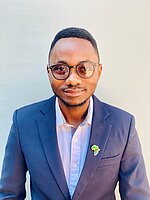
James Chrispin is a completing medical student from Catholic University of Health and Allied Sciences located in lake zone, northern part of Tanzania. He is a global planetary health campus ambassador, pioneer and chairperson of CUHAS Planetary Health Club (CPHC), SOPHEA planetary health summer school 2022 alumni. He has been advocating planetary health locally and globally through engaging medical students in planetary health activities, community outreach programs and awareness campaign on environment and human health. He has interest in studying the influence of climate change on infectious diseases and published several articles including the impact of climate change on HIV and Malaria in Sub-Saharan Africa.
Franziska Dresen
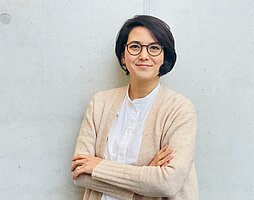
Franziska Dresen is a midwife (Graduation at Tübingen University Hospital) and has worked actively as a midwife for several years in hospitals and in outpatient care for women, newborns and families. Previously, she completed a graduate degree in Japanese Studies and Sociology (University of Bonn) and was active in both academia (among others at Tokyo University, Department of Sociology) and business in Tokyo, Japan. Since 2022, Franziska is a research associate and doctoral candidate in the Department of Midwifery Science at the University of Applied Sciences for Health in Bochum, Germany. In her research, she is working on Planetary Health Education in midwifery. She is a founding member of "Midwives4Future" and the interdisciplinary working group "KLUG AG Rund um die Geburt" within the German Alliance on Climate Change and Health (KLUG). Early 2023, Franziska spent a one-month working stay in Tanzania, gaining insights into local obstetrics. She visited CCBRT as well as Muhimbili National Hospital in Dar es Salaam and St. Kizito Hospital in Mikumi.
Sophie Gepp
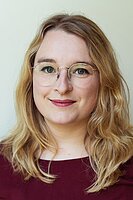
Sophie Gepp holds an MSc Public Health and is currently in her final year of medical school. She is a research associate at the Centre for Planetary Health Policy (CPHP) and a board member of the German Alliance on Climate Change and Health (KLUG). Sophie is currently pursuing her medical doctorate in the research group on climate change and health at Charité – Universitätsmedizin Berlin and the Potsdam-Institute for Climate Impact Research. She has experience in global and planetary health policy and has been a consultant for international organisations on climate change and health. She is Co-Chair of the Steering Committee of the Global Health Hub Germany and is a member of the Global Health 50/50 research collective.
Catrin Gersdorf
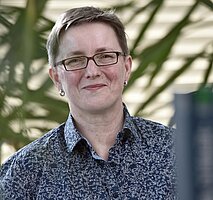
Catrin Gersdorf is Professor of American Studies at the University of Würzburg, and the Speaker of the Environmental Humanities class at the Graduate School for the Humanities. She is the author of The Poetics and Politics of the Desert: Landscape and the Construction of America (2009). Her published work includes essays and edited volumes on landscape and literature, the intersection of ecology and (American) democracy, the literary and cultural history of forests and gardens, and on individual writers, thinkers, and artists such as Thomas Jefferson, Henry David Thoreau, Walter Benjamin, Willa Cather, Nathanael West, Angela Carter, Ana Mendieta, Toni Morrison, and Annie Proulx. Her current research focuses on literary and cultural responses to the challenges of the Anthropocene.
Fabio Grieco
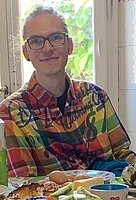
Fabio Grieco is a medical student at the University of Würzburg and currently working on his thesis about planetary health education at medical faculties in Germany. As an active member of Health For Future Germany and the German Climate Change and Health Alliance (KLUG e.V.) he works on several projects promoting planetary health education in German schools and has organised various workshops about climate change and health.
Milena Hegenauer
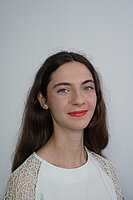
Milena Hegenauer recently graduated from Julius Maximilians University in Germany.
Her involvement in sustainability began in 2018 when she became part of the FVDZ Students Parliament, where she founded the Green Dentistry Students Team. In the area of international projects, she is one of the leading members of the Green Dentistry Day Team working with the International Association of Dental Students. She was responsible for the BDZM's Sustainability Resort and was Germany's official delegate to the European Dental Students’ Association (EDSA). Afterwards she became EDSA’s Policy Officer, during her term she managed make the association CO2 neutral (intheris numbers). As a founding member of Youth for Sustainable Oral Health, she works continuously to achieve sustainable oral health and was a speaker at the COP26 satellite event "Sustainability in Healthcare and education" this year.
Alina Herrmann
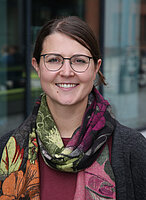
Alina Herrmann is a medical doctor, who is especially interested in how health systems can adapt to climate-related health impacts and contribute to climate change mitigation. She leads a research group on climate-smart health systems at the Heidelberg Institute of Global Health and is part of the research team lead at the Institute of General Medicine at the University of Cologne. Her main interest is the role of the health workforce in climate-resilient and sustainable health systems. In particular, she works on conceptualizing climate sensitive health counselling, reducing greenhouse gas emissions of health facilities, adaptation of ambulant health care and integrating all of these topics into the training of the health workforce.
Martin Herrmann
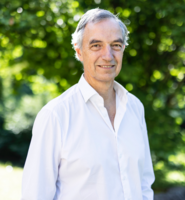
Dr. Martin Herrmann is the president of KLUG – German Climate and Health Alliance. The main focus of his work over the last 30 years has been initiating and implementing transformational change in global settings. He lead a global network of senior consultants, focusing on the design and implementation of complex change in multinational commercial and health organisations. In the last decade he focused on global health consulting GAVI – The Vaccine Alliance, WHO, Unicef, KfW, DAAD.
In addition, he does research in developing methodologies for organizational change and leadership education using the paradigm of complexity and Hannah Arendt´s perspective on action and power.
He is a Physician by training and teaches at the Center for International Health University of Munich and the planetary Health Academy.
Samira Jabakhanji
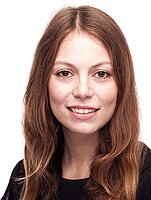
Dr. Samira Jabakhanji is a postdoctoral researcher in the Department of Public Health, Social and Preventive Medicine at the Mannheim Institute of Public Health at Heidelberg University, and in the School of Population Health at the Royal College of Surgeons in Ireland University of Medicine and Health Sciences. Samira holds a BSc degree in European Public Health; MSc in Healthcare Policy, Innovation and Management; and PhD in epidemiology.
Samira’s main fields of expertise are planetary health, sustainable healthcare, and early childhood obesity. While working in health economic research, Samira has co-founded the Obesity Cobweb network (COllaBoration in health economic modelling of overWEight and oBesity) and is now their executive chair. Additionally, Samira has conducted research in the areas of cross-border emergency care, quality improvement in healthcare, chronic care delivery in low- and middle-income countries, cost analysis of healthcare interventions, and health inequalities.
In relation to climate change and health, Samira has been working on the Horizon 2020 project ENBEL (Enhancing Belmont Research Action to support EU policy making on climate change and health) and was involved in a study on the effectiveness of heat action plans. She is currently investigating the availability of planetary health education in German medical curricula as part of the PlanetMedEd project, and developing a short course for trained health professionals to educate them about sustainable healthcare. Moreover, Samira loves to connect with people and is interested to conduct more research in relation to climate change and global health.
Yusuf Jameel
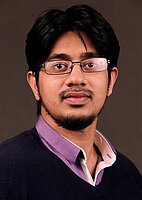
Yusuf Jameel is an Associate Scientist at Project Drawdown focusing on identifying the co-benefits of climate solutions, and addressing climate, poverty, and development challenges simultaneously. He authored a landmark report last year on climate and poverty that shows how climate solutions can also generate benefits for human well-being in Africa and South Asia.
Yusuf obtained his Ph.D. from the University of Utah and has previously worked as a researcher at the Massachusetts Institute of Technology (MIT) and the University of Florida where he led several projects focused on the food-energy-water nexus.
Seni Jeremiah
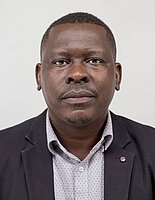
Jeremiah Seni is an Associate Professor of Microbiology and Infectious Diseases at CUHAS and Bugando Medical Centre (BMC) in Mwanza - Tanzania, and currently serving as the Director of Postgraduate Studies at CUHAS. His fifteen years of clinical and research experience has been on delineation of transmission dynamics and impact assessment of multi-drug resistant pathogens of public health importance, setting-up hospital-based antimicrobial resistance (AMR) and Antimicrobial Stewardship (AMS) surveillance systems, evaluating cost-effective diagnostics, developing evidence-based guidelines on infectious diseases treatment, prevention and control using One-Health approach. He has provided technical expertise to various programs/projects including the WHO Global Antimicrobial Resistance Research Agenda in the human health sector. He has provided also technical support to the many other in-country, regional and global programs (TMDA, FAO, ASM, QWArS, Swiss-TPH, ICARS, and USAID-MTaPS).
Seni is a member of the Tanzania Multisectoral Coordinating Committee implementing the National Action Plan on AMR (2017-2022, and 2023-2028); member of the Research and Surveillance ttechnical working group (TWG) and a National Chairperson of the AMS TWG. He has supervised and reviewed/examined research projects and dissertations/theses for over 200 students (at Master and PhD levels in Tanzania, Uganda, Zambia and South Africa). He has published over 100 technical reports and peer reviewed research articles.
Fatoumatta Kassama
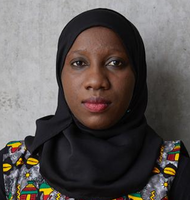
Fatoumatta Kassama has 11 years of experience in Nursing. She is the founder and CEO of Girls’ Pride based in The Gambia, an organization that promotes gender equality, provides eco-friendly and reusable sanitary pads for women and girls and teaches them the importance of using reusable sanitary products as positive climate mitigation actions that can reduce their carbon footprints, prevent blockage of sewage systems, protect our environment and water bodies from plastic waste and humans from air pollution.
Ms. Kassama is a Mandela Washington Fellow, One Young World Ambassador and Delegate Speaker, Opec Funds for International Development (OFID) Scholar & OFID young leaders award winner, Obama Foundation Leader, African Presidential Leadership Program Alumnus, World Youth Forum Delegate, Tony Elumelu Entrepreneur, Youth Excellence Award winner, Friends4SDGs Ambassador, Because Accelerator Entrepreneur, Change Now summit delegate, World Health Summit delegate, International Sustainability Academy fellow, and the former Acting president and vice president of the National Association of Gambian Nurses and Midwives.
Fatoumatta currently works for the Society for the Study of Women's Health (SSWH) as the Co-Principal Investigator for a 3-year implementation research project titled 'Shifting Gender Norms for Improved Maternal and Adolescent Health in The Gambia' funded by IDRC.
Michael Knipper
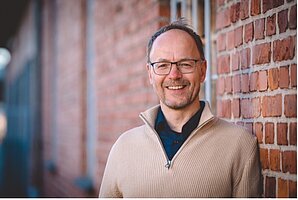
Prof. Dr. Michael Knipper is a physician, medical historian and anthropologist, trained in Germany (University of Bonn) and Spain (University of Oviedo). He did clinical work in pediatrics, tropical medicine and primary health care in Germany (1996-97, 2000-2001) and Ecuador (1997-1999).
In his research, he is interested in the history and current dynamics related to social medicine and human rights-based approaches to health, with particular attention to traditional medicine and intercultural health with indigenous communities in Latin America (Ecuador), as well as migration and health. His focus is on the social, cultural, legal and political determinants of migrants’ health, mental health and tuberculosis. In teaching, Knipper draws attention on a historically and anthropologically grounded perspective on the social, cultural and ethical dimensions of health, with particular focus on intercultural health, internationalization and migration. He served as consultant on migration and health for WHO, IOM and Doctors of the World, and was member of the UCL-Lancet-Commission on Migration and Health (2018). Currently, he is coordinating the Latin American Regional Hub of Lancet Migration: Global collaboration to advance migration and health (www.migrationandhealth.org).
Laura Liebau
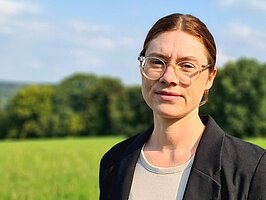
Laura has a Bachelor's degree in Physiotherapy and a Master's degree in Public Health with a focus on epidemiology, global health, climate change and health, and social inequality. She worked on the development of mobility assessments and on practical education for physiotherapy students. In doing so, she applied the principle of problem-based learning. She then worked in consultancy in the area of One Health. She also worked as a research assistant in a research project on digitalisation in teaching. Today, she works for medmissio Institute of Global Health as a project lead for an online library for health professionals in the Global South, where she was involved in the creation of the Planetary Health Toolbox. Furthermore, she is working on a project to develop a curriculum for health workers to prepare them for working in an HICD department.
Johanna Lieberth
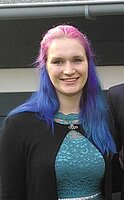
Johanna Lieberth is a medical student in her fifth year in Wuerzburg and is participating in a supplementary study group on global and planetary health. She is an active member of the local Health for Future group since 2020 and since 2021 of the newly founded PAN (Physician Association of Nutrition) University group here in Wuerzburg. The groups work on several projects such as a plant-based week in the student cafeteria, more sustainability in the regional hospitals, and more knowledge about the health risks of climate change for health workers and the population as a whole. Johanna has given various lectures about Climate Change and health and nutrition in times of climate change.
Given Moonga
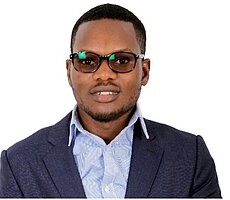
Given Moonga is completing his PhD in International Health- Medical Research at the Ludwig- Maximilians-Universität, Centre for International Health (CIH-LMU) München Germany. His holds a Masters of Epidemiology from the University of Zambia.
He is a research fellow at the Institute and Clinic for Occupational-, Social- and Environmental Medicine, LMU University Hospital, Munich, Germany. Currently he is working on topics of Planetary Health, Climate change and Nutrition, eHealth (Digitalization of health care), Spatial Epidemiology, especially modelling of exposure pathways. He has special interest in developing analytical methodologies to address inequalities, especially in nutrition. Given is also a lecturer/Researcher in the department of Epidemiology and Biostatistics, at the University of Zambia and a founding member of the Planetary Health Eastern Africa Hub | PHEAH.
Melvine Otieno
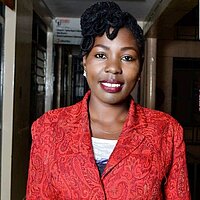
Melvine is an Environmental Health scientist and founder of Planetary Health Eastern Africa Hub.She has worked closely with KLUG- German Alliance Climate Change and Health in Climate Change and Health/Planetary Health Leadership online course-Transformational and transdisciplinary.She attained a BSc in Environmental Biology and Health and MSc in Environmental Health at the University of Eldoret. Since 2020-2022, Melvine Otieno has served as a Next Generation Network Fellow of the Planetary Health Alliance, working to inspire, activate and convene the next generation of Planetary Health Campus Ambassadors from around the world, as well as conduct outreach to facilitate local and international collaborations. She is an Associate team member of Women Leaders for Planetary Health (WLPH) where she advocates for gender equality for sound environment and public health solutions. She is also an active member of inVIVO Planetary Health, Society for Environmental Geochemistry and Health (SEGH), Royal Society of Chemistry (RSC), Africa Network for Internationalization of Higher Education (ANIE), International Alliance against Health Risks in Wildlife Trade (GIZ), Climate and Health Africa Network for Collaboration and Engagement (CHANCE Network) and Global Health Hub Germany. As an Early Career Researcher, Melvine has worked on several internationally funded projects as Research Assistant for Newton Utafiti fund on Aquaculture (2018-2019) and BGS-UoE-MU research on dynamics of Environmental Geochemistry and Health in the Lake Victoria Basin (2020-2022) and recently as a Co-Investigator on the GCRF QR Time Urgency Grant, to investigate the role of wet markets and backyard livestock in supporting nutrition of preschool-aged children in Kenya: challenges from COVID-19 influenced closure. At University of Eldoret, she is the project coordinator of ‘Strengthening One Health and Planetary Health in Eastern Africa’ (SOPHEA) project, funded by DAAD in partnership with Würzburg University and Catholic University for Health and Allied Sciences (CUHAS) in Tanzania.Presently, she collaborates with local, regional and international partners and she aspires to continuously participates with both the local and global community in building Planetary Health and One Health concepts to find solutions to environmental health challenges and imbalances.
Marcell Peters
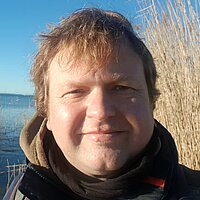
Marcell Peters is an ecologist working on the consequences of global change on biodiversity and ecosystem functions. He conducted most of his works in East Africa, studying the response of insects, birds and mammals to climate and land use changes. He holds a MSc and a PhD degree from the University of Bonn and is Associate Professor at the Department of Animal Ecology and Tropical Biology, University of Würzburg, Germany.
Michaela Primbs
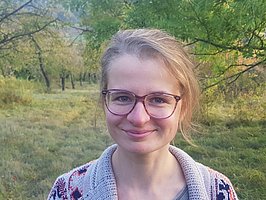
Michaela completed a Bachelor of Science in Organic Agriculture at the University of Kassel. During her studies she helped to build up the seminar programme and manage the agriculture at her family´s farm Lindenhof Hemmersheim. In her bachelor thesis she examined possibilities of communication media and learning events to raise soil awareness. After her studies she worked on the farm, planted an agroforestry system and built up a permaculture garden. 2021 she moved to Freising for her Master studies in Climate Change Management at the University of Applied Sciences Weihenstephan-Triesdorf. In this international study programme she learns practice-oriented solutions in climate change mitigation and adaptation in agriculture, peatlands, forests and renewable energies. In the last years Michaela extended her knowledge about agroforestry. She is participant of the first comprehensive advanced training programme for agroforestry consultants in Germany and part of the German-wide network of agroforestry planners and practitioners (DeFAF e.V.).
Joachim Rathmann
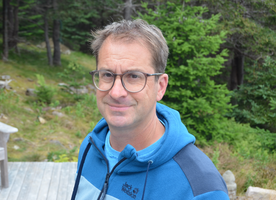
PD Dr. Joachim Rathmann is a research associate at the Chair of Geography and Regional Science at the Julius-Maximilians-University of Würzburg and Adjunct Professor at the School of Science and the Environment, Memorial University in Newfoundland, Canada.
His research focuses on cultural ecosystem services, forests, therapeutic landscapes and environmental ethics.
Esther Rugendo
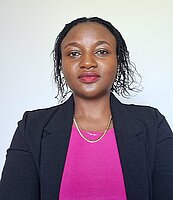
Esther Rugendo is a global public health professional and Monitoring and Evaluation (M&E) Specialist with 14 years of working experience with local, national, and international not-for-profit organizations in Kenya and Germany. She has worked within a range of local to international initiatives, utilizing evidence-based transdisciplinary approaches to improve population health and socioeconomic development. She has demonstrated her dedication to global health through her BSc in Nursing from the University of Nairobi (Kenya) in 2007 after which she also worked as a research intern at the Kemri-Wellcome Trust (Kenya) where she examined the effectiveness of hand washing using soap and alcohol hand-rub and then as a Research assistant at the University of Nairobi Institute of Tropical and Infectious Diseases (UNITID) investigating the gaps in accessing PMTCT services. She was a Monitoring and Evaluation Officer at the International Centre for AIDS Programs (ICAP) (Kenya) leading field data collection activities, analysis and use of HIV/AIDS and TB data for program improvement. Since then, Esther completed an MA in demography MSc in Population Studies (Demography) from the University of Nairobi in Kenya in 2016, became a Senior Monitoring and Evaluation Officer at the Centre for Health Solutions (Kenya) spearheading the design and implementation of M&E frameworks and data collection tools and collaborating with government, civil societies, donors, and other partners in coordinating HIV/AIDS and TB data collection, analysis, and use. Most recently, she worked as a Strategic Information Director at Henry Jackson Foundation Medical Research International., Inc. before joining the full-time master’s program.
Esther is currently a Master of Science International Health student at the Heidelberg Institute of Global Health (HIGH) at Heidelberg University in Germany. Her thesis titled “HIV self-testing preferences among participants enrolled in a six-month pre-exposure prophylaxis (PrEP) dispensing program in Kenya” uses qualitative methods to investigate the impact of a differentiated service delivery (DSD) model of PrEP with 6-months dispensing supported with interim HIV self-testing (HIVST) among HIV-negative adults (≥18 years) at risk of acquiring HIV. This research is novel in its aim to formalize the use of interim HIVST to encourage PrEP uptake and adherence through a DSD model of six months dispensing and interim (3 months) HIVST. If implemented, this delivery model may reach sub-Saharan African adults who are at high risk of HIV infection with prevention measures, reduce
barriers to HIV testing and PrEP uptake, and provide opportunities for linkage to care.
Her main research interests are climate change and health, health financing, and implementation research.
Johanna Schauer-Berg
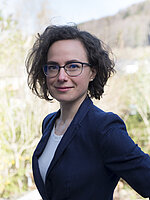
Johanna Schauer-Berg is a research associate and doctoral candidate at the Institute for General Practice, Family and Preventive Medicine at Paracelsus Medical University Salzburg. She is a trained general practitioner and holds a medical degree from the Medical University Vienna as well as a Master degree in Public Health and diploma in environmental medicine. Her current research focuses climate-health-literacy in primary care.
Johanna is a passionate planetary health advocate and Chair of Health for Future Austria, an interdisciplinary network of health professionals advocating for urgent action on climate change and a climate resilient as well as zero-carbon health care system. She is referee for environmental medicine for the medical chamber Salzburg and has experience in international climate-health-policy.
Jörg Schmid
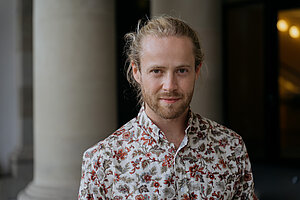
Dr. Jörg Schmid, MD, is a resident in general medicine and a research associate for nutrition and planetary health at the German Climate Change and Health Alliance (KLUG). His work focuses on the impact of nutrition and food production on planetary health, the consequences of global environmental change such as climate change on human health, and on physician's possible action in the socio-ecological transformation towards a more sustainable society and economy. He teaches on nutrition and planetary health at Fulda University of Applied Sciences in the Public Health program.
Eva-Maria Schwienhorst-Stich
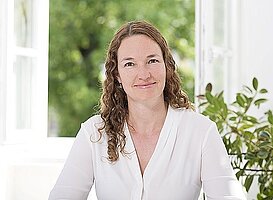
Dr. med. Eva-Maria Schwienhorst-Stich is a medical doctor with previous clinical experience in pediatrics and "tropical medicine"/infectious diseases for several years. She has obtained a Diploma in Tropical Medicine and Public Health (DTMPH) from Charité and a Masters in International Health (MScIH) from Heidelberg University. She has worked for several years as a global health consultant for the German Leprosy and TB Relief Association (DAHW/GLRA) based in the headquarters in Germany with field visits to various countries in Asia, Africa, and Latin America. She has been teaching on global health topics at various universities and ran a summer school on tropical medicine and global health at Medmissio in Würzburg for several years. She has been head of the medical skills lab at Würzburg University medical faculty for the past three years and is about to finish her Masters in Medical Education (MME). After having learned about the dramatic extent and the urgency regarding the triple planetary crisis - climate change, biodiversity loss and pollution - her current focus is advancing planetary health education and action locally, nationally and internationally, the latter through the SOPHEA project. Apart from being a "scientivist", she is a mother of three daughters and deeply concerned about how our actions today determine the future living conditions on our planet earth.
Nadja Simons
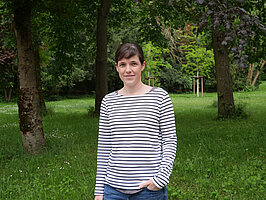
Nadja Simons has recently joined the University of Würzburg as a juniorprofessor for Applied Biodiversity Science. A trained ecologist, she is interested in the influence of land use practices on biodiversity and ecosystem functioning, with a focus on arthropods (insects and spiders). On the one hand, she investigates how management decisions affect the functional diversity of arthropod communities at different spatial and temporal scales and how this translates into changes in the provision of ecosystem functions. On the other hand, she is also interested in how biodiversity and ecosystem services are considered in management decisions and planning, and how they can be integrated into decision-making processes. In her research, she combines ecological methods with application-relevant questions with the aim to build a bridge between ecology, society and politics.
Cecilia Sorensen
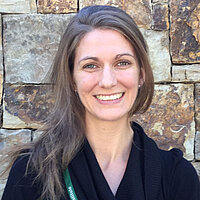
Cecilia Sorensen, MD is the Director of the Global Consortium on Climate and Health Education at Columbia University, Associate Professor of Emergency Medicine at Columbia Irving Medical Center and Associate Professor of Environmental Health Sciences at Mailman School of Public Health, Columbia University. As a physician-investigator at the nexus of climate change and human health, translating research into policy, clinical action, and education to build resilience in vulnerable communities is the focus of her research. Her recent work has spanned domestic as well as international emergent health issues related to climate change, including, extreme heat, degraded air quality, extreme weather events, emerging infectious diseases, women’s health, and worker health. Dr. Sorensen is a member of the Lancet Countdown on Health and Climate Change and serves on the National Academy of Medicine Action Collaborative for Decarbonization of the U.S. Health Sector. She is the co-editor of the textbook Climate Change and Human Health: From Science to Practice.
August Stich
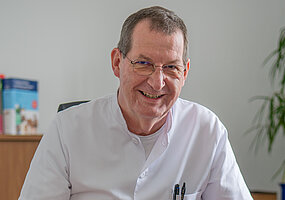
Professor Dr. August Stich is an MD and specialist in general, internal and tropical medicine. In 1992 he qualified as Master of Science at the London School of Hygiene and Tropical Medicine and worked afterwards in Würzburg, Liverpool and Heidelberg. In the years between 1988 and 2004 he had various assignments to tropical countries as medical doctor, health coordinator, advisor or research fellow, among others Zimbabwe, Somalia, Cambodia, Angola and Tanzania. His research work had a special focus on human African trypanosomiasis, malaria, HIV, clinical tropical medicine and migrant health. Since 2004 he is the head of the Department of Tropical Medicine in the Medical Mission Hospital in Würzburg. Since 2008 he is also the chairman of the Medical Mission Institute, since 2009 member of the extended board of the German Society of Tropical Medicine and Global Health and since 2022 member of the Supervisory Board of the German Leprosy and Tuberculosis Relief Association. In 2012 he was appointed Professor of Tropical Medicine at the University of Würzburg, in 2015 he was awarded the Albert Kölliker Price of excellent teaching. He currently lives with his family near Würzburg.
Andrea Stitzel
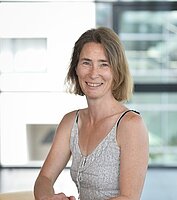
Andrea is a psychologist working at Carinthia University of Applied Sciences. Originally focussing in her research and teaching on health promotion and global health, in the last couple of years she has increasingly included the topic of climate change into her work. She is currently participating in several research projects within Erasmus+ and Horizon Europe related to climate change and health, and is teaching Planetary Health Management within the School of Health Sciences and Social Work at CUAS. In her capacity as a board member of Health for Future Austria she is raising awareness about the importance to implement climate competences into the regular curricula of health professionals.
Friederike von Gierke
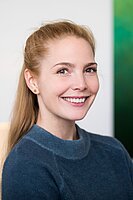
Dr. Friederike von Gierke is a medical doctor and heads the communication and public relations of the German Climate Change and Health Alliance (KLUG). She wants to communicate why healthy people only exist on a healthy planet and inspire her environment to actively shape the climate-friendly transformation of our society. Thereby she uses her experience from the time as a resident in anesthesia, the founding of a start-up as well as from the public relations work of a climate justice group and combines her personal core topics of communication and climate with her medical expertise.
Julika Walden
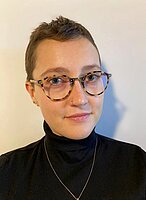
Psychologists for Future is a network of psychologists and psychotherapists who use their expertise to address the climate crisis and promote a sustainable future. This includes promoting awareness of the climate crisis, dealing with it emotionally and taking constructive action to deal with it, as well as supporting climate activists and groups.
We are Julika Walden and Christoph Hellwig, members of the Würzburg section. Julika is doing her apprenticeship to become a psychotherapist for children and working in a psychiatry in Schweinfurt. Christoph is about to finish his master's degree in psychology in Würzburg.






